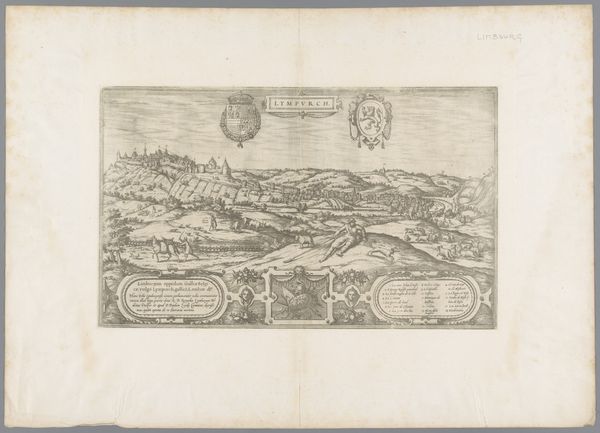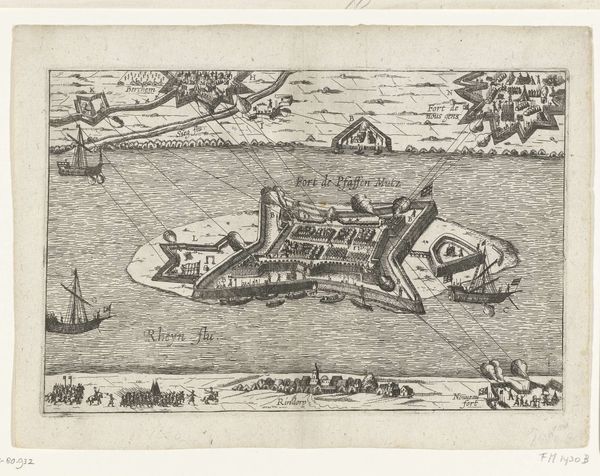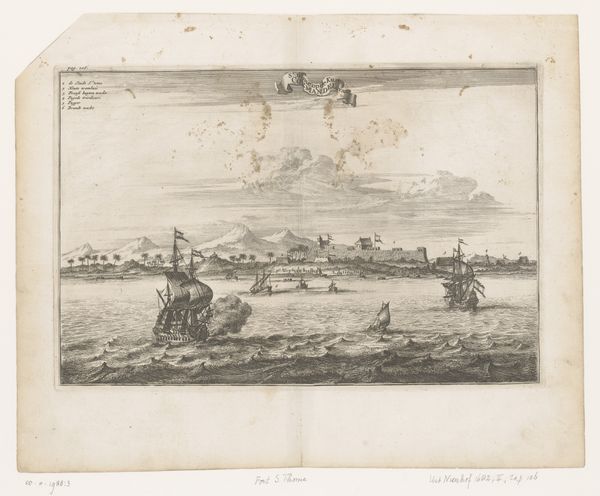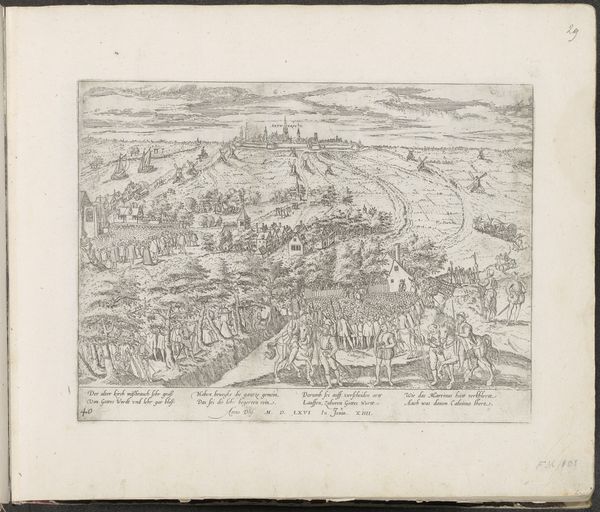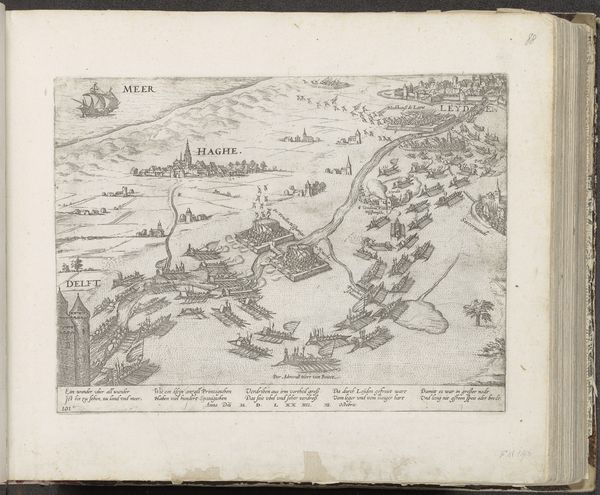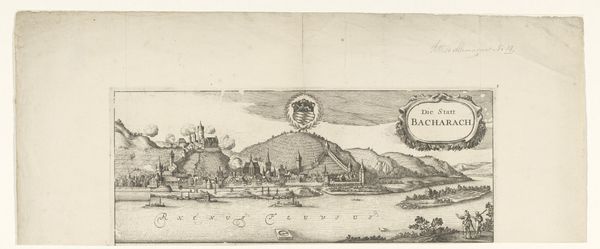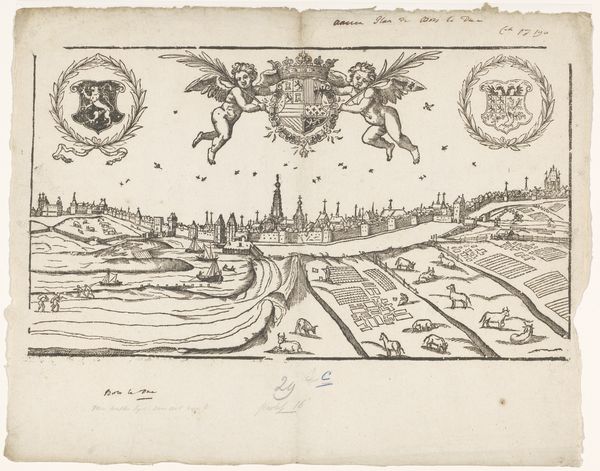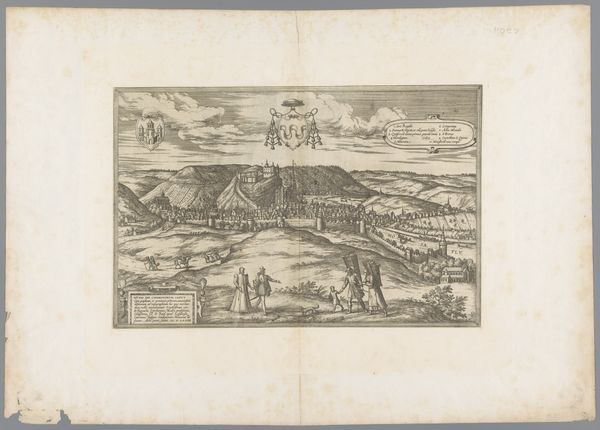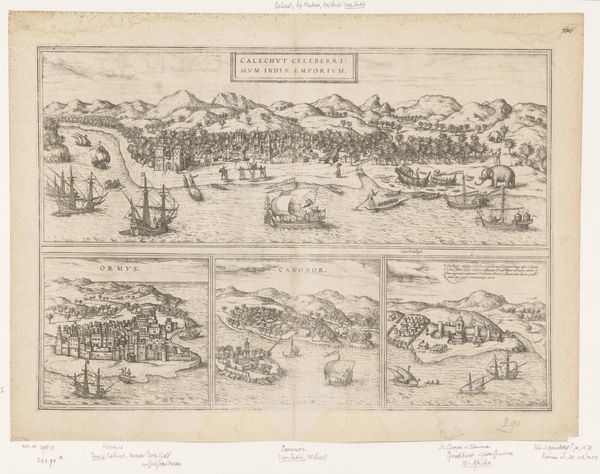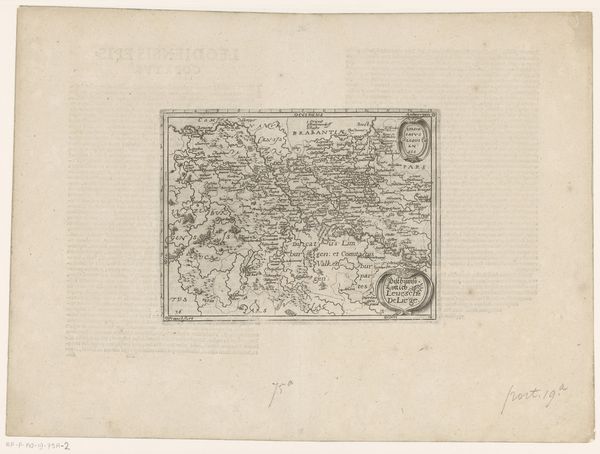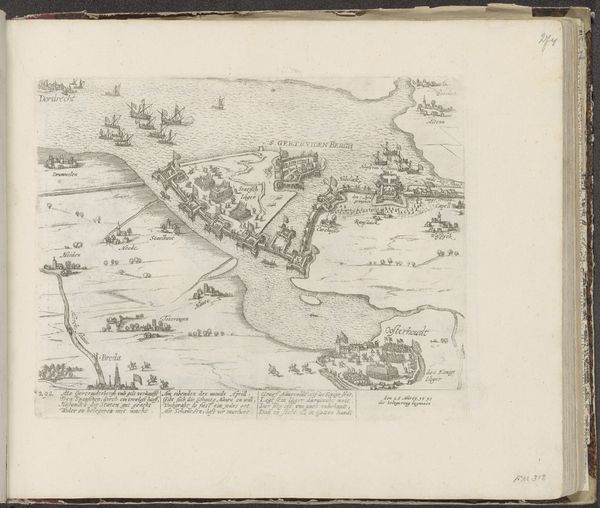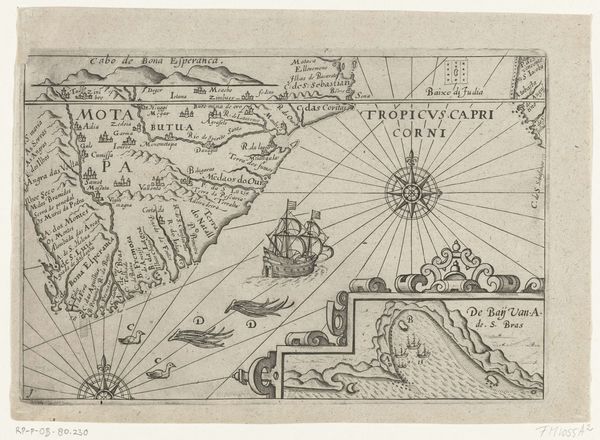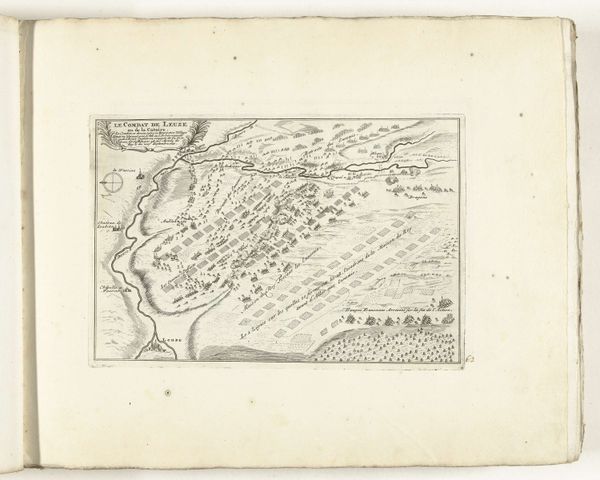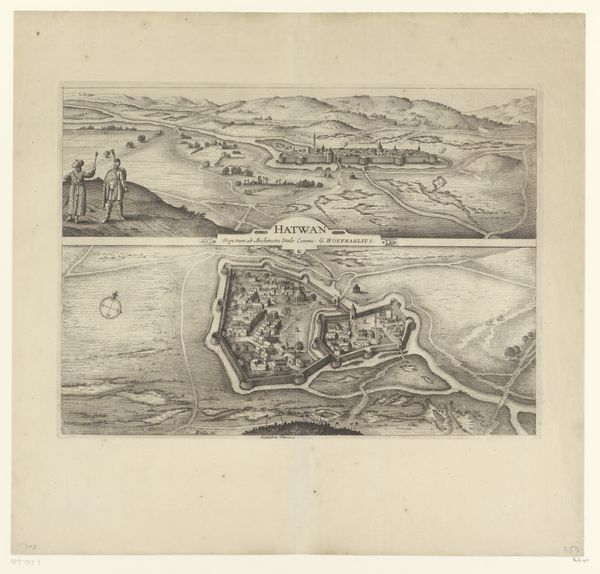
drawing, print, engraving
#
drawing
#
baroque
# print
#
landscape
#
cityscape
#
history-painting
#
northern-renaissance
#
engraving
#
realism
Dimensions: height 331 mm, width 478 mm
Copyright: Rijks Museum: Open Domain
This is Frans Hogenberg’s ‘View of Liège,’ made in the late 16th century using engraving. Engraving is an intaglio process, meaning that the image is incised into a metal plate – usually copper – using a tool called a burin. The artist then applies ink to the plate, wipes the surface clean, and the remaining ink held in the recessed lines is transferred to a sheet of paper through a printing press. The sharpness and clarity of the engraved lines are perfect for the depiction of cityscapes, capturing minute details of buildings and landscapes. Hogenberg's choice of engraving speaks to a society increasingly interested in accurate visual documentation and dissemination of knowledge. The printmaking process allowed for the wide distribution of this image, catering to a growing market of map collectors, scholars, and those interested in the visual culture of the time. By understanding the labor and material processes involved, we gain insight into the social and cultural values embedded in Hogenberg’s ‘View of Liège,’ moving beyond its aesthetic appeal to appreciate its historical significance.
Comments
No comments
Be the first to comment and join the conversation on the ultimate creative platform.
